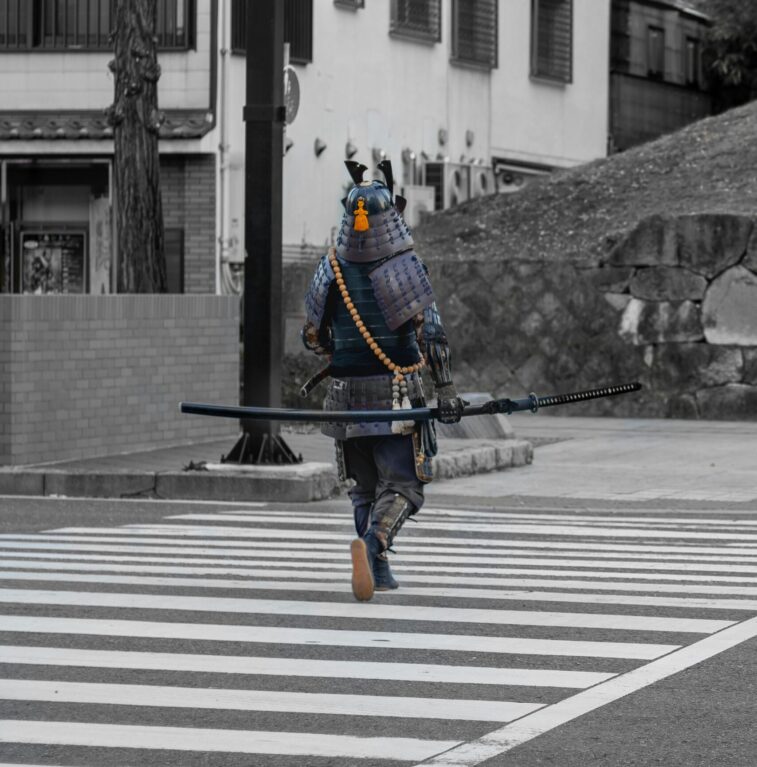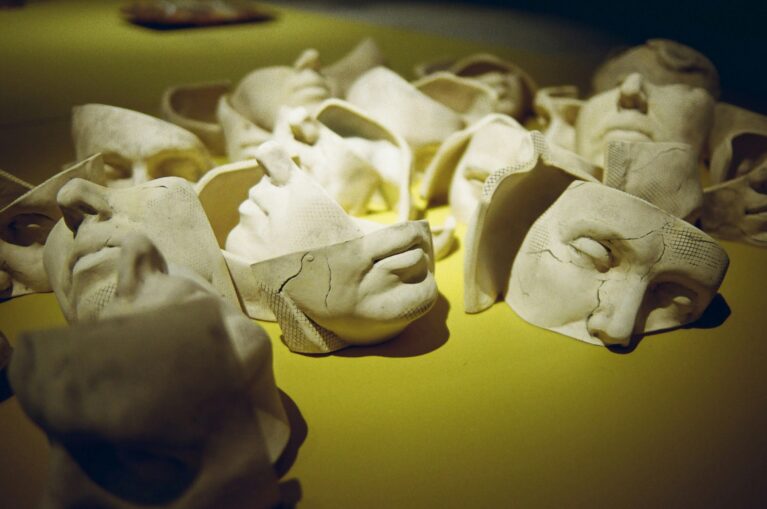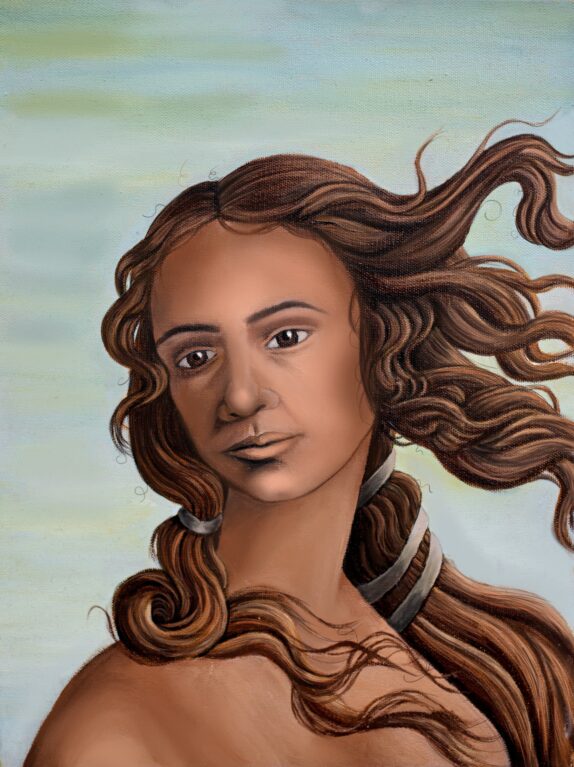Journal
Articles

It ain’t easy being twee
During my pre-teen years, I amassed a large collection of animal plushies and figurines. I loved collecting different species, different families and different genii. I didn’t just want a generic teddy bear, I wanted specific representations of the animal kingdom: grizzly bears, black bears, sun bears and so forth. (FYI: in earlier decades, it was hotly contested whether giant pandas were true bears or were closer to their raccoon relatives, so my panda plushie split its time between families.) My plushies were ‘decluttered’ when they were no longer ‘age appropriate’. I was expected to become a different kind of person – one who doesn’t think about plushies. One who can get by on utility, with no need for art, beauty or whimsy. One who can use their perspicacity for something sensible. It wasn’t to be. My dad’s influence failed miserably – emphasis on misery. Or, arguably, it swung me further away, back in the direction of my grandparents, imbuing my possessions with sentience, value and personality. I find it unbearable to let anything go.

Know thyself
We spoke to the genetic counsellor and the doctors. I had more than a 70 per cent risk of breast cancer and close to a 50 per cent risk of ovarian cancer in my lifetime. This would require vigilant surveillance, but with ovarian cancer there is no reliable screening method. It can already be advanced before it’s detected, which is what happened with my mother.
My mind kept taking me back to those sandy ruins and the Pythia. Those characters in mythology who tried to avoid their fate even when she had given them the answer. You can run but you can’t hide from destiny. Enter the acts of dramatic surgical intervention. Like a deus ex machina, but without the gods, just the science.

Culture warrior
It’s safe to say, then, that Star’s protagonist is not a carbon copy of Mishima, despite the novelist’s status as Japan’s first Sūpāsutā (superstar). Twenty-three and blindingly gorgeous, Rikio Mizuno, known by the anglicised monomer Richie, is a Japanese James Dean. ‘I am a speeding car that never stops,’ Richie muses, conflating the icon with the instrument of his death. ‘I’m huge, shiny and new, coming from the other side of midnight… I ride and ride and never arrive.’ Unlike Dean, Richie survives past his twenty-fourth birthday, the addition of a single year weighing on him like a death sentence. At the story’s conclusion, when Richie is confronted by the crinkled visage of a matinee idol of yesteryear, he realises that having celebrated the twenty-fourth birthday Dean was denied by his Porsche 550 Spyder, ‘Little Bastard’, he has missed his chance to, as Dean said, ‘Live fast, die young and leave a good-looking corpse.’
Anyone who has been to a gay guy’s thirtieth birthday party will recognise the sentiment.

The accidental film school
The DVD format – the Digital Versatile Disc – was invented in 1995 and reached the peak of its popularity in Australia in the 2000s, before the rise of streaming platforms in the 2010s. During those salad days, Australian entertainment companies started producing and selling DVDs at a rapid rate, building a library of local and international films. The Melbourne-based company Madman Entertainment were competitive players... The extras on their DVDs – making-of documentaries, deleted scenes, audio commentaries – allowed producers to have an active role in the historicisation of film; audio commentaries typically featured directors and actors rewatching and reminiscing together. But companies like Madman (and Criterion in the US), which distributed ‘art-house’ cinema, were more likely to invite film theorists and historians to provide an analytical reading of the film as it played.

A freer state of being
Today, we live in a time in which self-worth and value are often signified by a numerical figure – how many followers we have, how many likes we receive, what level of traction our posts incite. We live in a time in which this numerical figure equates to social capital, with digital ‘celebrities’ gaining varying levels of access to places and perks on the basis of their following. We live in a time in which the aesthetics and metrics of this burgeoning digital realm pervade and influence not only the way we live our lives but what we perceive to be reality. We understand ourselves and the world around us through the cultural codes, signs and symbols we consume. We depend upon and wield such cultural codes, signs and symbols to inhabit narratives in which we wish to belong, fashioning them like an armour that tells the world who we are. Appearances are everything.
But hyperreality is an unstable landscape. When our cultural codes, signs and symbols give way, so too do our carefully curated identities, which inevitably implode.

Less than human
What elevates Miku and makes her significant in our cultural landscape is her accessibility. Unlike traditional celebrities, who, even if they want to be accessible to their fans, only have so much time and can’t be perpetually available, Miku is software that anyone can buy and use. It only costs $200 and doesn’t require particularly advanced technical skills. Most of the people who produce Miku music are self-taught. One of the enduringly popular things about the concerts is that everything you see essentially comes from fans – the music, costuming and dance routines are all drawn from the expansive ‘Miku community’, where the lines between amateur and professional are deliberately blurred by everyone involved. You’re as likely to hear a song produced through a record label as you are one that was popularised by YouTube.

Creative industry
In the 1990s the term ‘cultural economy’ brought a double meaning to creative work. First, it captured the cultural dimensions of economic activity, like packaging design or marketing, and gave them an artistic dimension. Second, it referred to an expanding category of economic activity concerned with cultural goods and undertakings centred around value and profits. It would see the ascendancy of creatives to the C-suite, where companies across a range of industries appointed chief creative officers (CCOs) to oversee ‘creative activities’ and align them to corporate strategies and visions. Scan through job descriptions and you’ll see that CCOs are expected to be strategic leaders and ‘igniters’ of creative intuition within organisations. CCOs are charged with finding more ‘creative solutions’ to problems that often stretch beyond an organisation’s core operations.

Hidden tracks
Young and Kucyk are as good at tracking down hard-to-find people as they are at tracking down hard-to-find music, although sometimes they do reach dead ends. Their methods aren’t particularly advanced and are often helped by luck. Sometimes they’ll raid the White Pages. Sometimes they’ll search for relatives of musicians online. Sometimes – as in the case of another song on Someone Like Me – they’ll scour through five years’ worth of archived weekly newsletters from a Seventh Day Adventist Church in the UK and Ireland and spot a tiny article that contains the full name of a mysterious musician they’re trying to find.

The art of appropriation
A lot of the time, art students will copy the old masters to get better at painting and fix their technique. So I thought, I’m going to give this a go and copy Botticelli’s The Birth of Venus – and while I’m at it, I’m just going to make Venus brown and make her look like someone I know. I didn’t really have words at the time to say why I was doing that – I was just drawn to it.
That was almost ten years ago – I’ve continued to [create those paintings], and now I have more words to explain why. When I was doing my degree, I saw a lack of Aboriginal people being depicted in paintings in a positive light. Say I had an assignment and I had to look up work by Aboriginal artists – it was mainly traditional art [with a few exceptions], like Gordon Bennett and Vernon Ah Kee, but nothing that I felt really represented me as a young Aboriginal girl who didn’t grow up on Country. So I tried to find a way to connect to Culture, but I wasn’t taught how to do traditional Aboriginal art, dot painting or Wiradjuri painting, so I thought, ‘This [re-creation of famous works] will be my style.’
My master’s is based on the Aunty Collection and the ideas behind it. It delves into the history of how Aboriginal people have been represented: what creates a representation of someone, what goes into it, how society responds and how that shapes the way we’re seen today.

Stuff
It wasn’t dangerous, this thing with Marty. I could choose not to do what he told me to do. I had my freedom. But I didn’t want it. I wanted no responsibility. It was a turn-on. All the research shows that libido is diminished by mental fatigue. The mental load. I could see it with Rachel. She was my younger sister, but she looked about ten years older than me, and we joked that she had no working memory. Dory, I called her. She and Greg never had sex.
I didn’t have children, and the mental load was still big. And in every relationship I’d ever been in, it had gotten bigger. I ended up taking their mental load too. Emails to answer, bills to pay, budgets, basic living. Christmas gifts and dinner arrangements. Everything had a password now. Every password had a one-time code. Choice was overwhelming. A woman in the suburb next to mine had been found in the foetal position, dead from an aneurysm, clutching internet service-provider plans

Björk in concert
The wind feels strange on his face. He hasn’t stepped outside in too long. He hesitates in the doorway. He really doesn’t have time for this. He needs to write that last chapter. He needs to finish what he has promised. What separates humans from everything else is our urge to create. He turns back towards his computer but then he is outside and locking the door and it feels like he has no agency over this. His body wants to go for a walk and so he must walk. He catches a glimpse of something bright poking up through the mulch at the base of a tree. A mushroom. Then suddenly they all come into focus. Mushrooms everywhere. Mushrooms on tree trunks like little shelves for fairy books, mushrooms in the mud and mushrooms in among the grass. There are even little net-like things around red stalks. Weird Cronenberg mushrooms, half fungus, half machine.
You will be seen now
I saw a fin- ger loosen the zipper,the bag’s tan exterior animated by teeth. Beneath knuckle-white shades, faces surfaced–witnesses in a waiting room. Pareidolia...